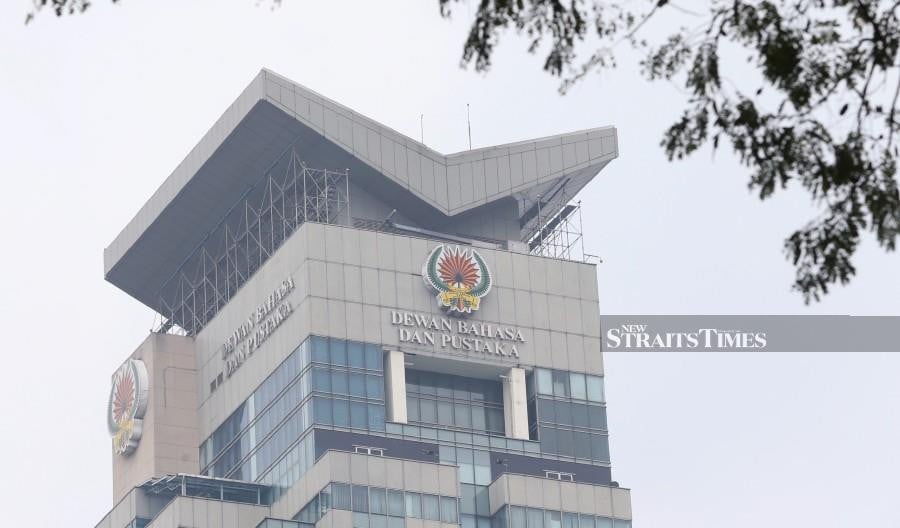June 22 marked the 65th anniversary of the founding of the Dewan Bahasa dan Pustaka (DBP) — the central national agency dealing with the development of language and literature. Created in July 1956 with a staff of 20 people, it has become the largest research and publishing centre in Southeast Asia.
Now it employs hundreds of specialists who carry out unique work on the preservation and development of the Malay language and literature, as well as preparation and publication of dictionaries, encyclopaedias and other publications.
The most important area is the development and enrichment of the national language. This became especially urgent after the adoption of the Language Act by Parliament in 1967, when Malay was declared the only official language.
The goal was to expand the lexical possibilities of the language by creating new terminology so that it could effectively play the role of the national and official language in the state apparatus, education system, as well as science and technology.
More than 30 committees were created to develop a unified terminology for all branches of knowledge, which prepared and published hundreds of collections with a total of 900,000 terms, allowing the higher education institutions to introduce the teaching of many subjects in Malay as early as 1970.
DBP played a significant role in the development and introduction in 1972, together with Indonesia, of a new, unified spelling of the Malay language. Moreover, on the initiative of DBP, since 1972, Malaysia and Indonesia have been working together to unify the terminology of various variants of the Malay language, including Indonesian.
In 1985, Brunei joined this work. Later, a tripartite council was created, which was able to agree on thousands of terms, collected in two huge volumes and published in 1987.
In 1970, with DBP's assistance and the first in the history of the country, the most complete dictionary of the Malay language Kamus Dewan, compiled by Teuku Iskandar, was published.
A major event in Malaysian lexicography was the release of English-Malay dictionary Kamus Inggeris Melayu Dewan (1992), the largest of such dictionaries in the country (the preparation of the dictionary was carried out by DBP jointly with the Australian National University with the participation of the National Laureate Shahnon Ahmad) and in 2012, Malay-English Dictionary Kamus Melayu Inggeris Dewan.
DBP pays attention to the development of literature, preserving the heritage of the past and encouraging young talents. For this purpose, work is carried out to record oral folk art to prepare anthologies and scholars publications of the Malay classics. Seminars, conferences, and competitions for the best poetic and prose work are organised, too.
DBP also acts as a secretariat for organising the awarding of state prizes in literature, maintaining close contacts with the national association of writers GAPENA (Gabungan Persatuan Penulis Nasional). In cooperation with DBP, the talent of such prominent writers and poets like Usman Awang, Kemala, Anwar Ridhwan and Sutung blossomed.
As the largest publishing centre in the country, printing books and the majority of textbooks in Malay, it also published the first national encyclopaedias: The Encyclopaedia of Natural Sciences in 20 volumes, the Encyclopaedia of the Discoverer for children and youth in 16 volumes and the Encyclopaedia of Malay History and Culture in 4 volumes.
DBP maintains active contacts with many research and scientific institutions abroad and invites foreign specialists to implement literary and linguistic projects on a contract basis. From Russia, in this capacity, several scholars used to work in DBP, such as Boris Parnikel, Natalia Alieva and Tatiana Denisova.
DBP representatives took part in 1993 an exhibition of books in the Malay language organised by the Library for Foreign Literature in Moscow. In 1995, they participated in the Russian Nusantara Society conference on the study of the Malay language and literature in Russia.
In 1995, DBP also signed a Memorandum of Understanding with the Nusantara Society on the basis of which a number of joint projects were implemented including the exchange of scholars, the preparation and publication of an anthology of Malay poetry in Russian (1996) and a collection of poems by A. S. Pushkin (2001).
In connection with the 65th anniversary, the Nusantara Society sent a congratulatory note to DBP Director-General Datuk Abang Salehuddin Abang Shokeran, in which it expressed the hope for further mutual beneficial cooperation.
The writer, writing from Russia, is a former lecturer of University Malaya


